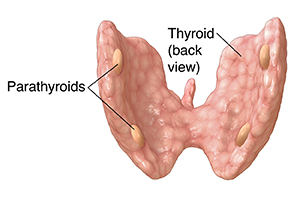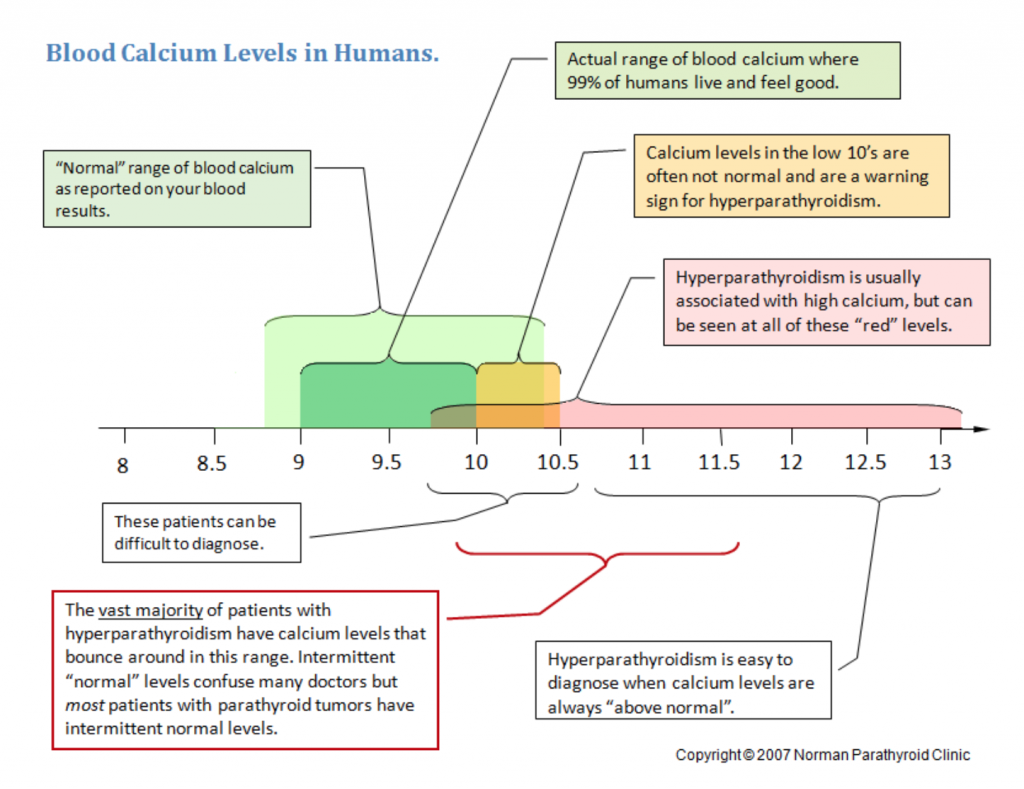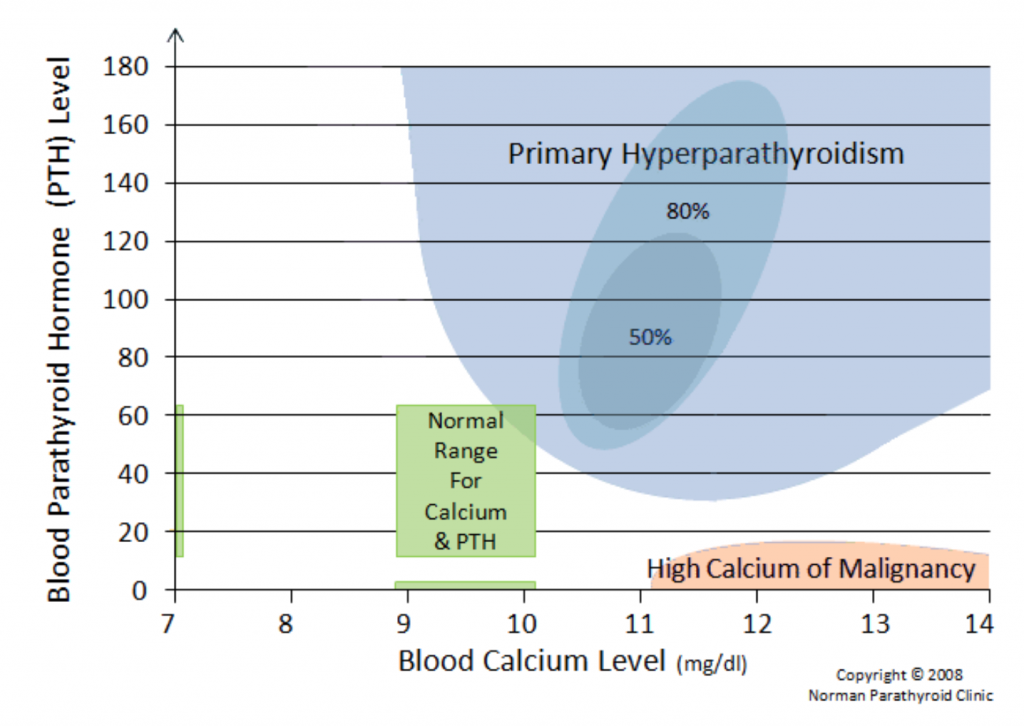What Are Symptoms of Parathyroid Disease?
In medical school, we were taught a mnemonic to memorize the symptoms associated with parathyroid disease: “Stones, bones, moans, groans, thrones, and psychic overtones.”
These categories can be helpful ways to think about how abnormal parathyroid levels can affect the body causing:
Stones
Because calcium levels are too high, people are at greater risk for kidney stones. There is also some evidence that gallstones and gallbladder disease are more prevalent with parathyroid disease.9
Bones
When parathyroid glands release too much hormone because of a higher rate of release of calcium from stores in the bones.
Over time, this can lead to:
- Arthritis
- Bone pain
- Early thinning
- Osteoporosis
- Hip and spinal fractures
Moans
Optimal levels of blood calcium are essential for nerve conduction and almost every part of normal biochemistry.
The classic symptoms include:
- General malaise
- Fatigue
- Lethargy
- Muscle pain
Groans
The term ‘Groans’ refers to gastrointestinal symptoms. When calcium levels are abnormal, the digestive fluids are not secreted properly.
This can trigger all of the classic symptoms that get misdiagnosed as IBS, SIBO, or heartburn:
- Constipation
- IBS
- Bloating
- Nausea
- Vomiting
- Ulcers
- Hyperacidity
Thrones
This one is probably the least intuitive, but it did make for a handy rhyme.
Have you ever heard of the “porcelain throne”? People with parathyroid disease can have severe constipation that does not respond well to typical treatments.
They may also have an abnormally high thirst and, therefore, frequent urination is common.
Some even end up having to spend a lot of time on the throne.
Psychic Overtones
The brain is far from immune to the effects of normal calcium levels. It renders it far less able to carry out its proper cellular interactions.
I have seen many patients with debilitating anxiety that led to years of unsuccessful treatments through medication, talk therapy, or lifestyle. Only to disappear in a matter of days after treatment.
Common symptoms here can include:
- Anxiety
- Confusion
- Depression
- Memory loss
- Brain fog
- Difficulty walking
You can see that these symptoms are numerous and common.
Some, like anxiety, fatigue, and muscle pains, are symptoms that doctors all too often give up on finding explanations to help diagnose and treat.















